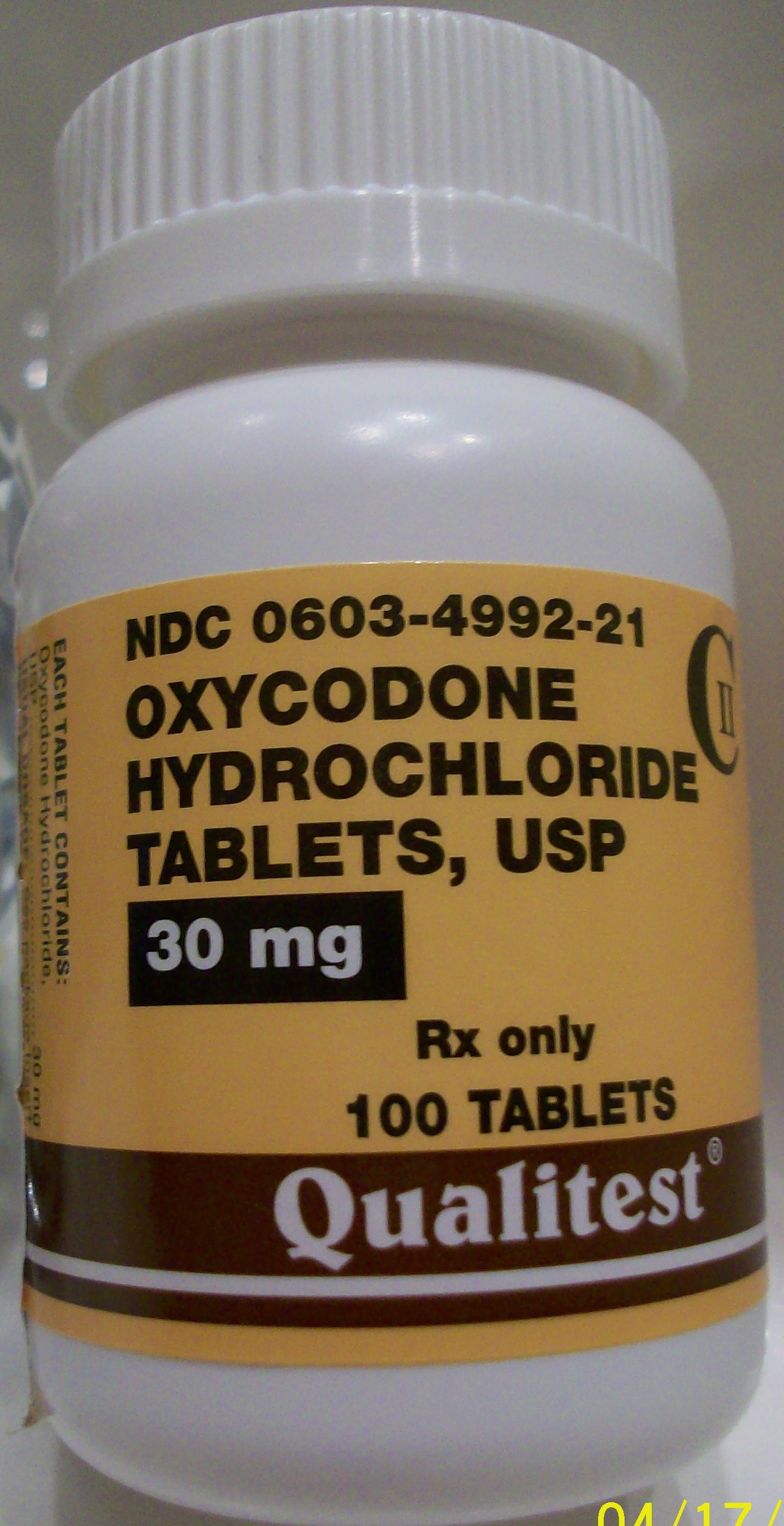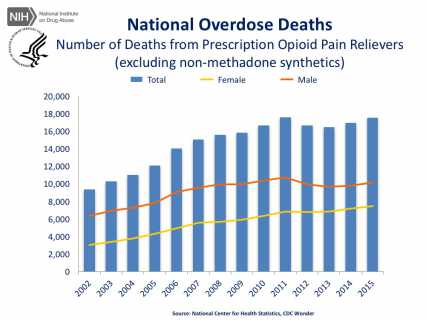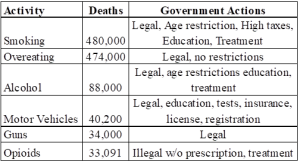
Elliott R. Morss ©All Rights Reserved
Introduction
There is an Opioid epidemic sweeping the U.S. So what to do about it? In an earlier piece, I documented that leading “entertainment” vehicles for humans are drinking, drugs, and sex. I offer a few initial observations on these:
- A vast majority of people use drinking, drugs and sex for enjoyment: to relieve stress and relax.
- Only a small minority become addicted.
- Government efforts to control drinking, drugs and sex have never worked.
Below, I apply these points to the Opioid crisis.
Background on Opioids
Opioid consumption for pleasure is not new. From the beginning of recorded time, Opioids have been used for enjoyment and the alleviation of pain. Opioids continue to be used for the same reasons. The UN reports that only 2% of the people using Marijuana or Opioids, including Heroin, needed treatment. And despite news stories proclaiming an epidemic, most Americans use them in a manageable fashion. In 2015, 230 million Opioid prescriptions were written. Only 2 million were reported to have a substance use disorder involving prescription pain relievers. This means the vast majority of these were used properly to reduce pain and other forms of suffering. Some were also used to “get high” with a very small portion used to feed a dangerous addiction.
What is a bit unique about the current “crisis” is that the primary suppliers of what is supposed to be a “controlled” substance are medical doctors. What do we draw from this? The US market for almost anything is simply too large to control: where there is money to be made, there will always be a supplier.
The Epidemic Is Very Real
In 2015, drug overdoses resulted in 52,404 deaths. Opioid addiction is driving this epidemic, with 20,101 overdose deaths resulting from the use of prescription pain relievers. The following chart indicates how drug overdose rates have increased by state between 2010 and 2015. The overdose increase in New England states is notable.
The Growth in Drug Overdose Deaths by State

Source: Centers for Disease Control and Prevention (CDC)
Efforts are underway to increase treatment capacity. And further work to limit supplies via prescription restrictions and higher penalties is ongoing. Will it work?
The Failed US Efforts to Control Drug Use
Since 1996, the US government has spent more than $150 billion to cut off illicit drug supplies. No country has spent anything approaching that amount. It has not worked. For countries with a million people or more, US Opioid prevalence is higher than in any other. The US has a military presence Afghanistan, the largest source of opioids. Despite this, opium production in Afghanistan rose by 43% to 4,800 metric tons in 2016 compared with 2015 levels. The area under opium poppy cultivation also increased to 201,000 hectares (ha) in 2016, a rise of 10 per cent compared with 183,000 ha in 2015.
The US “drug war” has resulted in a criminal element (including US doctors) causing 100,000 homicides per year. And US incarceration rates are higher than any other country in the world, many related to Opioid use. In short, a complete failure. And despite government efforts costing billions and killing thousands annually, crops are up and supplies are plentiful. And if efforts to rein in doctors overprescribing opioids are successful, more addicts will move on to heroin, a more dangerous drug.
So What Can Be Done?
To address this question, let’s look at what government does about other well-documented killers.
1. Cigarettes result in 6 million deaths annually worldwide and 480,000 deaths per year in the US.
2. The CDC does not estimate deaths directly from obesity, but a recent study suggested 18% of all US deaths (or about 474,000) are attributable to this addiction.
3. 88,000 Americans die from alcohol-related causes annually. In 2012, 3.3 million deaths, or 5.9% of all global deaths were attributable to alcohol consumption.
4. Motor Vehicle deaths just jumped up to 40,200 last year. The increase is in part attributable to auto companies making dashboard into entertainment centers for drivers.
5. Guns including suicides result in 34,000 US deaths annually.
6. Opioid deaths in 2015 totaled 33,091, with 20,101 from prescription pain killers and 12,990 from heroin.
Table 1 provides these data along with government activities/controls for each.
Table 1. – Killers and Government Activities/Controls

Conclusions
Our review of well-documented killers indicates that most are legal. Why is this? Because efforts to control killers when there is a demand for them simply do not work in the US. Opioids should be made legal with the same government controls applied to them is now done with cigarettes: age restrictions, high taxes used to finance treatment and education. This would result in a huge reduction in criminal activities and related deaths. It would allow a large reduction of largely ineffective government efforts to control the production, shipment and use of drugs.
Consideration should also be given to pardoning prior users now serving jail terms.
Investment Possibilities
Major Opioid pharmaceutical companies include: Endo Health Solutions (ENDP), Teva Pharmaceutical Industries (TEVA), Johnson & Johnson (JNJ), Allergan (AGN), Abbott Labs (ABT), Pfizer (PFE) and Novartis (NVS). They will benefit from increased demand resulting from legalizing Opioids.



